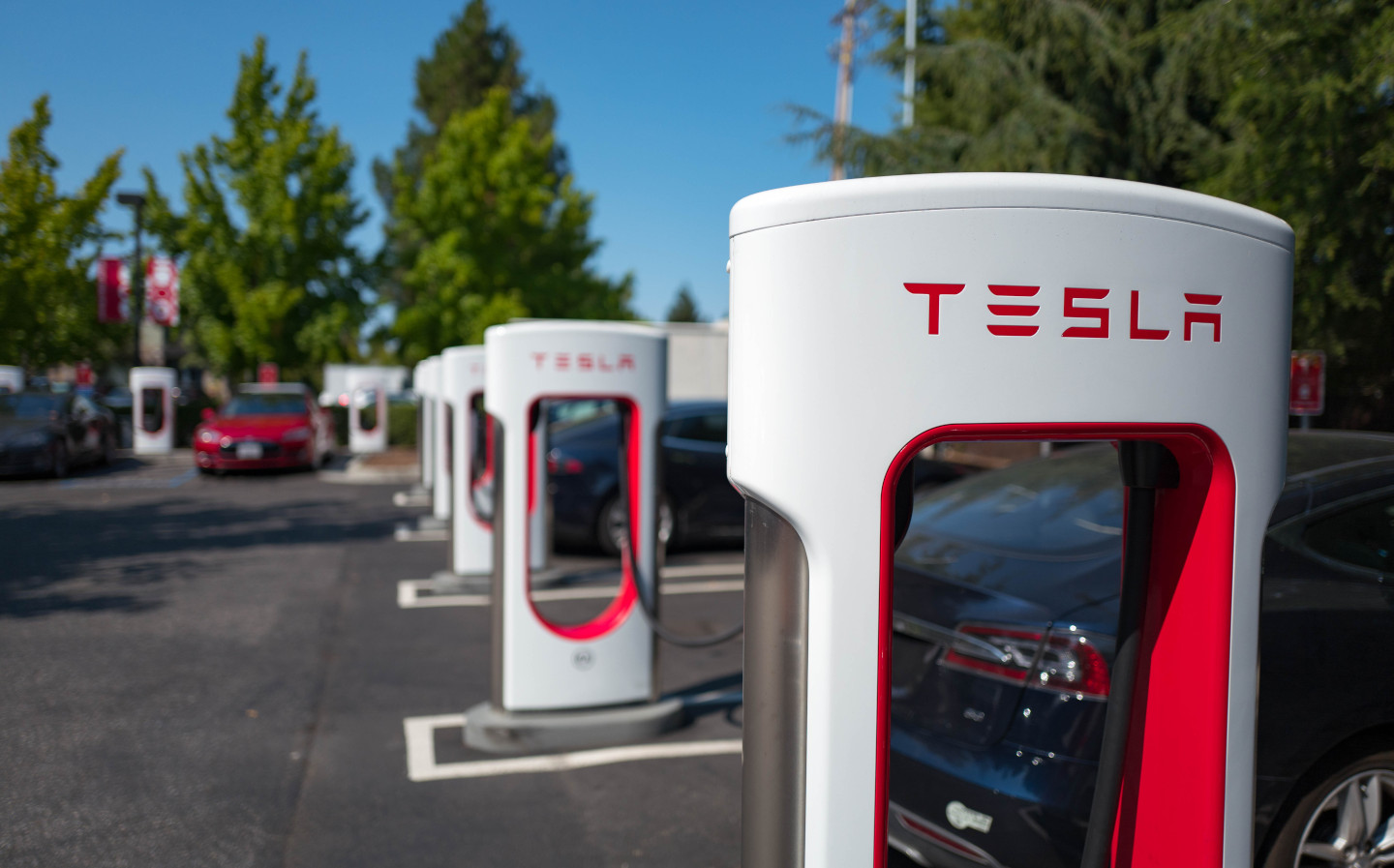Tesla files trademarks for roadside restaurants
Establishments designed for drivers to use while their cars are charging
TESLA Motors has filed paperwork indicating that it is considering opening roadside diners for drivers to use while their electric cars are charging.
The company has filed trademark applications in America under the categories of “restaurant services, pop-up restaurant services, self-service restaurant services and take-out restaurant services”. The trademarks apply to the company’s name, a stylised version of its name, and its “T” logo, The Times reported.
The establishments would be set up in close proximity to Tesla superchargers, a network of electric car charging points available exclusively to the brand’s customers. There are approximately 25,000 Tesla superchargers at 2,500 locations globally, around half of which are in North America.
The idea of opening Tesla restaurants has been raised by company executives for a number of years, as a means for drivers to pass half an hour or more while their cars recharge.
Former Tesla chief technology officer JB Straudel said in 2017 that the company was looking into partnering with existing restaurant chains and convenience stores.
“People are coming and spending 20 to 30 minutes at these stops,” he said. “They want to eat, they want to have a cup of coffee, they want to use the bathroom.”
Meanwhile, Elon Musk tweeted in 2018 that he would “put an old school drive-in, roller skates & rock restaurant at one of the new Tesla Supercharger locations in LA”, even proposing the idea of being able to order from the restaurant via a pop-up menu on cars’ infotainment screens. However, the idea has yet to come to fruition.
Last April, Musk tweeted that he was working on opening a drive-in cinema and 50s-style diner at a new Supercharger location in Santa Monica, California.
John Coldham, a British intellectual property partner at the law firm Gowling WLG, told The Times that it was likely Tesla would file similar trademark applications in the UK in due course, and voiced worry that the business model Tesla was moving towards could have adverse effects on its cars.
“If successful, one wonders whether it might create a disincentive for Tesla to make its cars travel further between charges or to charge too quickly,” he said.
Tesla did not respond to the newspaper’s request for comment.
Tesla’s cars are currently ahead of the pack when it comes to range. The new Model S Plaid, which is scheduled to hit roads in America next week, claims to be able to do up to 520 miles on a single charge, while the long-delayed new generation Tesla Roadster, which is currently estimated to make its debut next year, will reportedly be able to travel 620 miles between stops.
Tweet to @KieranAhuja Follow @KieranAhuja
- After reading that Elon Musk to open Tesla-themed roadside diners, you might want to read that reservations for the Tesla Cybertruck have topped one million, according to reports.
- The car maker has also stopped accepting Bitcoin as payment, citing environmental concerns.
- Tesla has also received criticism from Chinese state media over alleged safety issues.





